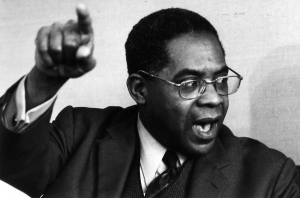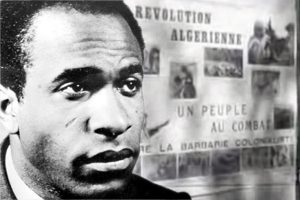“Does this make a return to thinkers such as Aimé Césaire and Frantz Fanon all the more relevant in the contemporary period?” Brad Evans asks in the New York Times on Dec. 7, 2015
Yes, the answer is yes. The philosopher George Yancy explains:
“The poet Aimé Césaire, through immanent critique, knew that European humanism was a farce. Of course, Jean-Paul Sartre knew this as well. And Fanon knew what it was like to embody reason and have it denied to him. In “Black Skin, White Masks,” he argued that when he was present, reason was not, and when reason was present he was no longer. So, one might argue that reason and black embodiment, from this perspective, are mutually exclusive. And yet, at the end of that text, Fanon says, “My final prayer: O my body, make me always a man who questions!”
Fanon appeals to something that is beyond abstract political rights discourse. He appeals to his own body, something concrete and immediate. Fanon asks of his body not to allow him to be seduced by forms of being-in-the-world that normalize violence and dehumanization. Doubt can be linked to critique. In a society that hides beneath the seductions of normalization, critique is undesirable and deemed dangerous. Yet in our contemporary moment, the fulfillment of Fanon’s prayer is desperately needed.”
Read the full article, “The Perils of Being a Black Philosopher” at the New York Times and join us for #Nietzsche1313!
Aimé Césaire Frantz Fanon



I often read your article for getting a clear idea. A Unique idea thanks for sharing. This post is really useful.
giftformenwomen